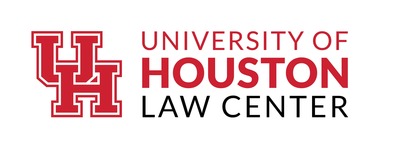UH Law Center Professor Evans says accessing your own genomic data is a civil right
HOUSTON, Jan. 4, 2018 /PRNewswire-USNewswire/ -- Storing and using people's genomic data in research offers many benefits to society, but it places a person's civil rights at risk, according to University of Houston Law Center Professor Barbara J. Evans whose legal analysis was published today in the American Journal of Human Genetics.

"Unless people can see the data that researchers are storing about them, they cannot understand their risks or take steps to protect their civil rights," said Evans, Alumnae College Professor of Law, director of the Center on Biotechnology & Law, and professor of electrical and computer engineering at the UH Cullen College of Engineering.
The Genetic Information Nondiscrimination Act of 2008, or GINA, foresaw that Americans will face new threats to their civil rights as genomic testing grows more common, Evans said. If genomic data are mishandled or hacked, people might face genetic discrimination, identity theft, or even be wrongly linked to a crime.
"Having access to your own genomic data also lets you exercise important constitutional rights, such as your right to go on social media and assemble groups of people with genes like yours and lobby Congress to spend more research dollars studying how those genes affect your health," she said. "Like the right to vote, access to one's own genomic data is a foundational civil right that empowers people to protect all their other civil rights."
GINA created an individual access right by forcing changes to a major federal privacy law, the Health Insurance Portability and Accountability Act Privacy Rule, Evans explained. These changes, finalized in 2013 and 2014, gave Americans a legal right to inspect and obtain copies of their own genetic test results stored at HIPAA-regulated laboratories, including some research labs.
Giving people access to data from research has been controversial, Evans said. The genomic data that research laboratories produce is sometimes "subclinical quality"— in other words, it does not always meet the same quality standards that are required for data used in clinical health care. Ordinary laypeople, it is feared, lack the "scientific literacy" to be leery of subclinical-quality information and may misuse it to make healthcare decisions.
This potential for misuse concerns many bioethicists and members of the medical profession, as well as safety regulators like the U.S. Food and Drug Administration and the Centers for Medicare and Medicaid Services, which regulates clinical labs, she continued. These safety regulators, at times, have taken stances that cause research labs to block people's new access right.
"You have one regulator telling research labs to provide access, to protect civil rights. Other regulators try to block access, citing safety concerns. It's unseemly," Evans said. "Labs are caught in the middle and many Americans are being deprived of a federally protected civil right to see their data."
"When safety and civil rights collide, there are ways to reconcile the two," she said. "The good news is that we aren't forced to choose between having safety or having civil rights. We can have both, but it requires regulators to be smart and think outside their usual boxes."
Evans' research was supported by the National Institutes of Health, the National Human Genome Research Institute, the National Cancer Institute, and the UH Law Foundation.
Click here to read the article: "HIPAA's individual right of access to genomic data: reconciling safety and civil rights."
Media contacts:Carrie Anna Criado, UH Law Center Assistant Dean of Communications and Marketing, 713-743-2184, cacriado@central.uh.edu; Elena Hawthorne, Assistant Director of Communications and Marketing, 713-743-1125, ehawthor@central.uh.edu; John T. Kling, Communications Manager, 713-743-8298, jtkling@central.uh.edu; and John Brannen, Senior Writer, 713-743-3055, jtbranne@central.uh.edu
About the University of Houston
The University of Houston is a Carnegie-designated Tier One public research university recognized by The Princeton Review as one of the nation's best colleges for undergraduate education. UH serves the globally competitive Houston and Gulf Coast Region by providing world-class faculty, experiential learning and strategic industry partnerships. Located in the nation's fourth-largest city, UH serves more than 45,000 students in the most ethnically and culturally diverse region in the country.
About the University of Houston Law Center
The University of Houston Law Center (UHLC) is a dynamic, top tier law school located in the nation's 4th largest city. UHLC's Health Law, Intellectual Property Law, and Part-time programs rank in the U.S. News Top 10. It awards Doctor of Jurisprudence (J.D.) and Master of Laws (LL.M.) degrees, through its academic branch, the College of Law. The Law Center is more than just a law school. It is a powerful hub of intellectual activity with more than 11 centers and institutes which fuel its educational mission and national reputation. UHLC is fully accredited by the American Bar Association and is a member of the Association of American Law Schools.
![]() View original content with multimedia:http://www.prnewswire.com/news-releases/uh-law-center-professor-evans-says-accessing-your-own-genomic-data-is-a-civil-right-300577804.html
View original content with multimedia:http://www.prnewswire.com/news-releases/uh-law-center-professor-evans-says-accessing-your-own-genomic-data-is-a-civil-right-300577804.html
SOURCE University of Houston Law Center